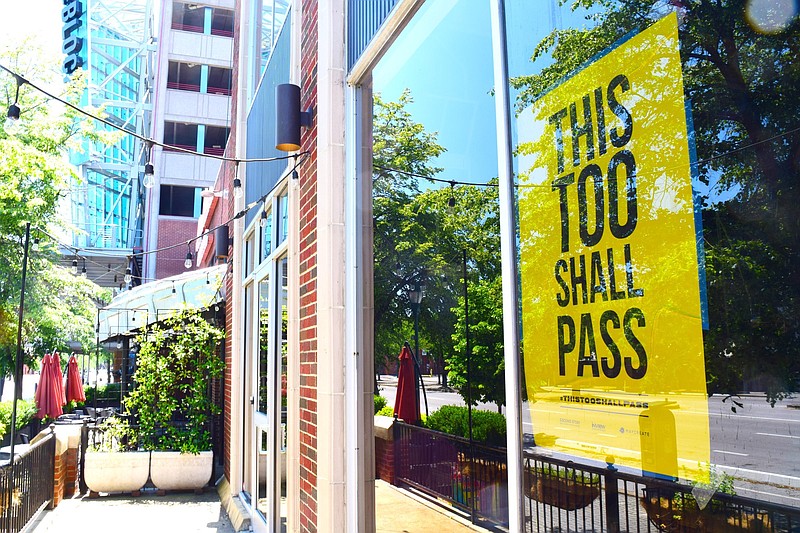Tennessee has regained more than 70% of the nearly 400,000 jobs it lost this spring from the pandemic, but the lingering virus is still hobbling the recovery and the economic scars from the unprecedented downturn won't be fully overcome in the state's hard-hit hospitality industry until 2024, according to a year-end economic forecast released Wednesday.
"There is still a lot of uncertainty surrounding the economy and economic recovery, especially with regard to the trajectory of the virus and whether the current surge will lead consumers to grow cautious again," said Larry Kessler, research associate professor at the Boyd Center for Business and Economic Research at the University of Tennessee.
In its annual economic forecast to the governor, Kessler and other UT economists estimated the state's economy shrunk by 3.5% in 2020 and Tennessee will end the year with 116,000 fewer jobs than a year ago.
In 2021, Tennessee should recover most, but not all, of the drop in the state's Gross Domestic Product this year with the economy forecast to grow 2.9% in the next year. Kessler said economic growth should rebound as vaccines take hold and the economy opens up again in the second half of the year. But the next six months could still be rocky and somewhat sporadic in its recovery, he said.
"The recovery may be one of fits and starts as we continue to grapple with the virus," Kessler said in the 204-page economic report delivered to Gov. Bill Lee. "In the short-term, economic activity will largely depend on the trajectory of the virus, accompanying government responses (to control the virus or provide fiscal support), the development and deployment of a vaccine or vaccines, as well as the behavior of individuals across the state, nation, and world."
The forecast predicts that Tennessee will not fully recover from the downturn until the end of 2022 and employment won't again reach the pre-pandemic peaks until the middle of 2023 even with a relatively strong 3.6% growth rate predicted in 2022.
This year's downturn has hit businesses across the state. In Chattanooga, a separate survey of area businesses released this week by the Chattanooga Area Chamber of Commerce found that 62% of companies said their revenues are down this year, including 8% that said their revenues were less than half of last year's volume. Asked about next year, 30% of the business respondents in Chattanooga were "optimistic" about their business outlook, but 50% said they were "concerned" and nearly 12% of the businesses reported they were at risk of closing.
Such shutdowns will take years to recover from in the restaurant and hospitality industry, Kessler said.
Unemployment in Tennessee, which fell to 3.3% before the pandemic, jumped in April to a record high of 15.5%. UT economists forecast that Tennessee will end the year with a jobless rate of about 5.5%.
Despite this year's economic slowdown, Tennessee's tax revenues have still grown this year, buoyed by both income gains from federal stimulus measures and new tax rules to allow the state to capture sales taxes on more online sales.
Government spending rose from 22% to 32% 0f the state's economy as billions of dollars of federal loans, stimulus payments and other assistance were poured into the economy to offset the economic slowdown triggered by the pandemic lockdowns on many businesses.
"Sales taxes have risen 3.7% during the current fiscal year, widely different from the underlying economic performance in Tennessee," Kessler said. "Tax revenue has generally benefited as some substitutions have been away from non-sales taxable purchases, such as airline travel and elective surgery, and towards sales taxable purchases."
Homeowners also have apparently used time at home to buy more appliances and make more home renovations, which have also boosted sales tax collections.
Contact Dave Flessner at dflessner@timesfreepress.com or at 423-757-6340.
